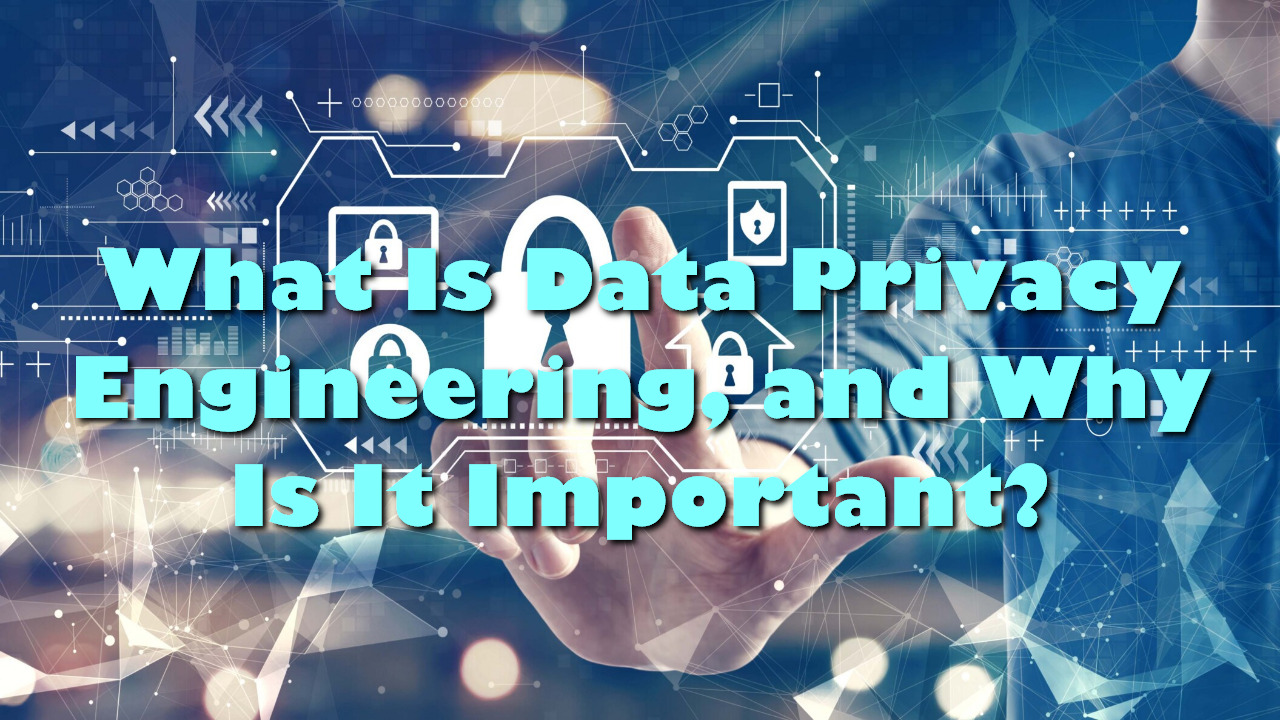
Data privacy engineering is the process of designing and developing software systems that prioritize data privacy protection. It involves applying privacy principles and practices at all stages of the software development lifecycle to minimize the risk of data breaches, unauthorized access, and other privacy violations.
The Importance of Data Privacy Engineering

The importance of data privacy engineering is growing in the modern digital age, where large amounts of sensitive information are being collected, stored, and processed by various organizations. Data breaches and cyber attacks can result in significant financial losses, reputational damage, and legal consequences. Moreover, regulations such as the General Data Protection Regulation (GDPR) and California Consumer Privacy Act (CCPA) require companies to protect users’ personal data and hold them accountable for data breaches. If you want to know more about DPE and data mapping, the link is here.
The Role of Data Privacy Engineers

Data privacy engineers play a crucial role in ensuring the privacy and security of data in various organizations. They are responsible for implementing and maintaining data privacy policies and procedures that protect the sensitive information of individuals and organizations from unauthorized access, use, or disclosure.
The primary role of data privacy engineers includes designing and implementing security controls, such as access controls, encryption, and authentication protocols, to protect data from external and internal threats. They are also responsible for evaluating and recommending security technologies, such as firewalls, intrusion detection systems, and security incident response tools, for ensuring that the organization’s security measures remain current and effective.
In addition to technical responsibilities, data privacy engineers also collaborate with legal and compliance teams to ensure that the organization is in compliance with applicable privacy laws, regulations, and policies. They may also conduct privacy impact assessments to identify potential privacy risks and develop risk management strategies to mitigate those risks.
Advantages and Disadvantages of Data Privacy Engineering

Advantages of Data Privacy Engineering
Protection of Personal Information: Data privacy engineering ensures that personal information is protected from unauthorized access, use, or disclosure.
Compliance with Regulations: By implementing data privacy engineering, organizations can ensure compliance with various data privacy regulations, such as GDPR, CCPA, and HIPAA.
Trust and Reputation: Customers trust organizations that prioritize privacy protection and are more likely to do business with them. Data privacy engineering can also improve an organization’s reputation.
Risk Mitigation: By identifying and mitigating privacy risks, data privacy engineering can help prevent data breaches and avoid potential legal, financial, and reputational consequences.
Disadvantages of Data Privacy Engineering
Cost: Implementing data privacy engineering can be costly, especially for small organizations that may not have the resources to invest in robust privacy protection measures.
Complexity: Implementing data privacy engineering requires expertise in privacy laws and regulations, as well as technical knowledge of the software systems being developed.
Interference with Functionality: Some data privacy measures may interfere with software functionality, making it more difficult to implement.
Balancing Privacy with Other Interests: Balancing privacy protection with other interests, such as business needs and customer expectations, can be challenging and requires careful consideration.
Overall, the advantages of data privacy engineering outweigh the disadvantages, as protecting personal data is essential in today’s digital age.
Conclusion
Data privacy engineering helps organizations build trust with their users by demonstrating their commitment to protecting personal data. It also helps organizations comply with legal and regulatory requirements and avoid costly penalties. Ultimately, data privacy engineering ensures that users’ privacy is respected and their personal data is used ethically and responsibly.



